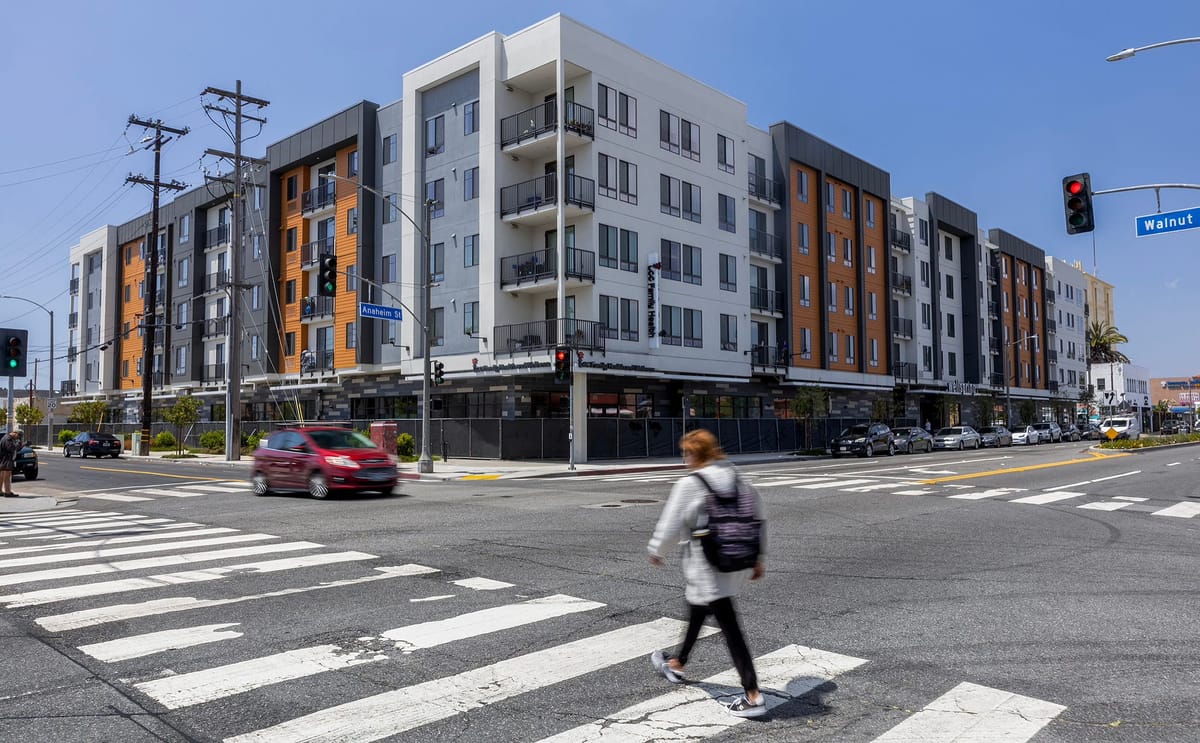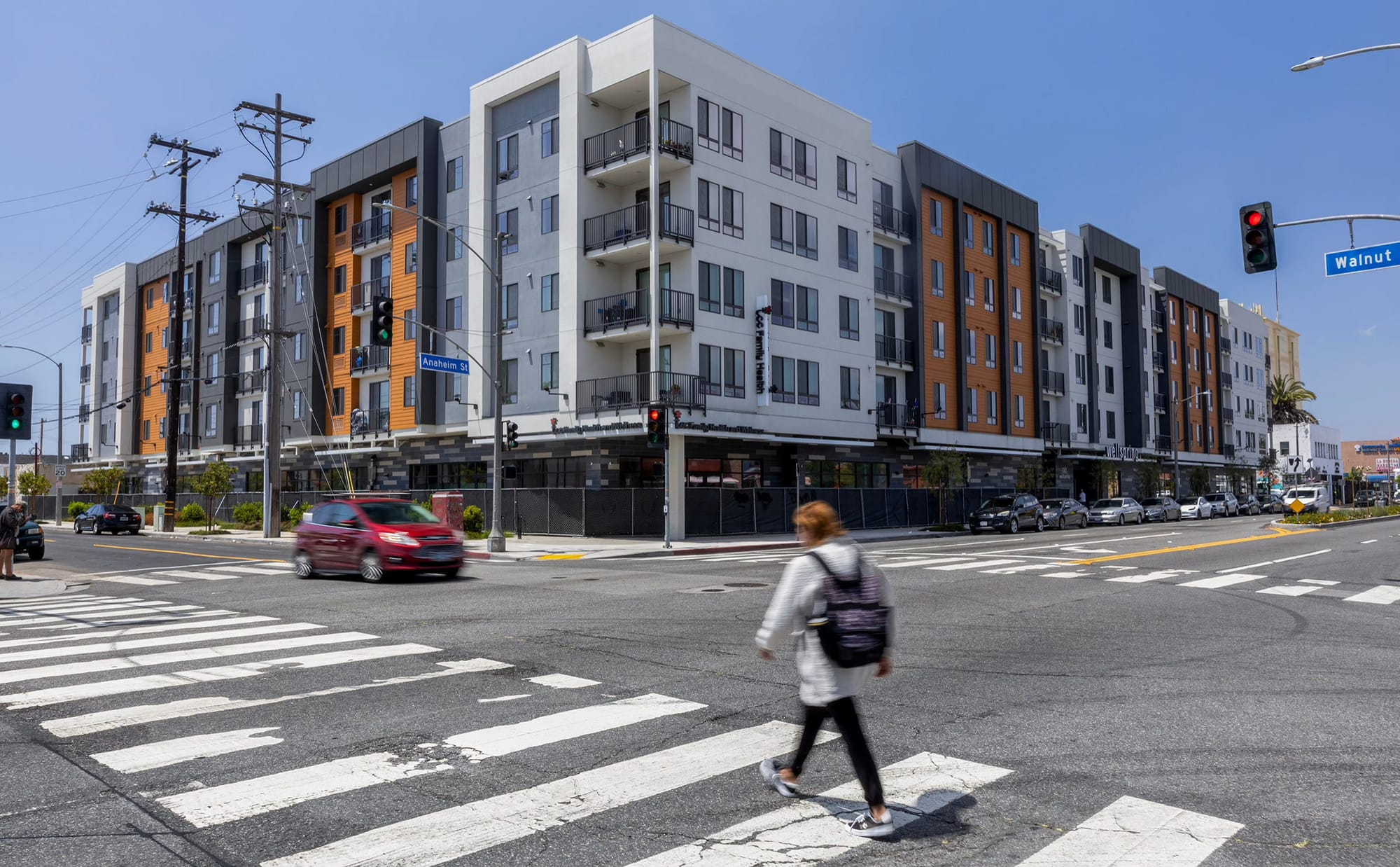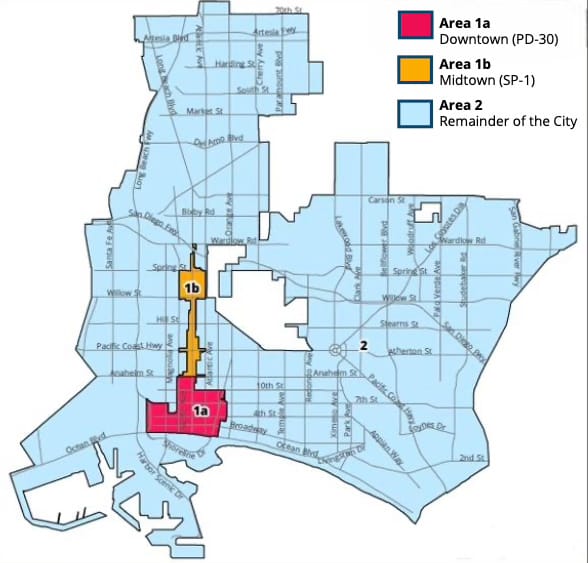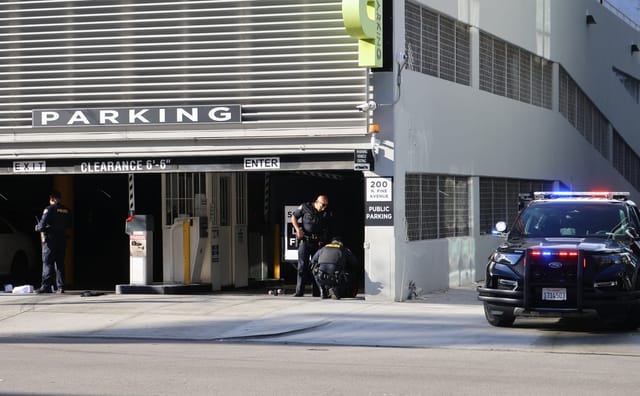Long Beach could expand affordable housing mandate citywide by 2025
The inclusionary housing policy that's in place Downtown and in other parts of the city requires 11% of new construction rental units to be set aside as affordable.


Next year, Long Beach could begin expanding its inclusionary housing policy that requires new construction to include affordable units as city officials seek to cut into the affordable housing crisis.
The City Council was presented with a proposal that could phase in the expansion over three years starting in 2025, which would see developers reserve an increasingly larger portion of the overall units in their projects for lower-income households.
The percentage could start at 5% in 2025 and then increase to 6% in 2026 before ending at 11% in 2027, according to a presentation given to the council Tuesday night.
Long Beach’s existing policy, which only applies to the Downtown area and a stretch of Long Beach Boulevard south of the 405 Freeway, already requires 11% of rental units and 10% of ownership units to be set aside as affordable.
“It’s a citywide commitment, not just a commitment of some areas,” said Mayor Rex Richardson.
Don’t let Long Beach turn into a news desert. Become a Watchdog today.
Richardson had asked for the city to look at expanding the policy last week as part of a package of proposals he’s seeking to implement to help speed up affordable housing production in the city. Richardson said Tuesday that the region is in a crisis and the city needed to explore every opportunity to build more housing.
Under the current policy, new affordable rental units are set aside for “very” low-income households and new ownership units are reserved for moderate-income households. Both types of units come with a 55-year affordability covenant.
A family of four could qualify for a rental unit if they make under $63,050 annually while a family of four in an ownership unit would have to make less than $117,850, according to state income limits.

The policy the council adopted in 2021 hasn’t slowed housing production, according to city officials, but it also hasn’t resulted in a large chunk of newly built affordable units.
According to city data, a total of 2,112 units have been entitled since 2021 in the areas where the inclusionary housing policy is in effect, but just 168 of those units will be affordable because of the policy.
The small number of units is partially due to a number of projects getting their entitlements approved before the council’s February 2021 vote, which exempted those projects from the law even though they were built after it went into effect.
Another 851 affordable units have been built by affordable housing providers that use tax credits and city loans to help finance projects like The Wellspring project that recently opened on Anaheim Street.
The city’s Planning Commission and the council, both of which will have a say in where and how the policy is expanded, could look at a variety of options over the next few months. Before the council adopted its policy in 2021 the Planning Commission had recommended a mix of income levels rather than just one.
Community Development Director Christopher Koontz told the council Tuesday that if it wanted to require a mix of affordability across the city it would likely have to update the rules for the existing inclusionary housing zone as it would potentially go against the city’s goals and potentially put it at odds with state regulators.
“We can’t have a policy that is very low income Downtown and moderate elsewhere,” Koontz said.
During the last Regional Housing Needs Assessment Long Beach was assigned with making room for over 26,500 units but low-income and moderate-income units are not included in the current policy for rental units.
Some other changes to the existing policy that could be considered include rounding up to the next full unit rather than letting developers pay fees in lieu of building the additional unit and adding a requirement that new affordable ownership units are sold to first-time homebuyers.
Koontz said that the Community Development Department will host a minimum of two public meetings in the coming months and he anticipates that the Planning Commission will meet a handful of times before it votes to send the issue back to the City Council.
While Koontz said the department was hopeful to have the council vote on the issue as soon as November, the projected implementation date of Jan. 1 was just a target date.
“That’s a goal, not a requirement, and if we need more time we’ll take more time,” Koontz said.
We need your support.
Subcribe to the Watchdog today.
The Long Beach Watchdog is owned by journalists, and paid for by readers like you. If independent, local reporting like the story you just read is important to you, support our work by becoming a subscriber.





